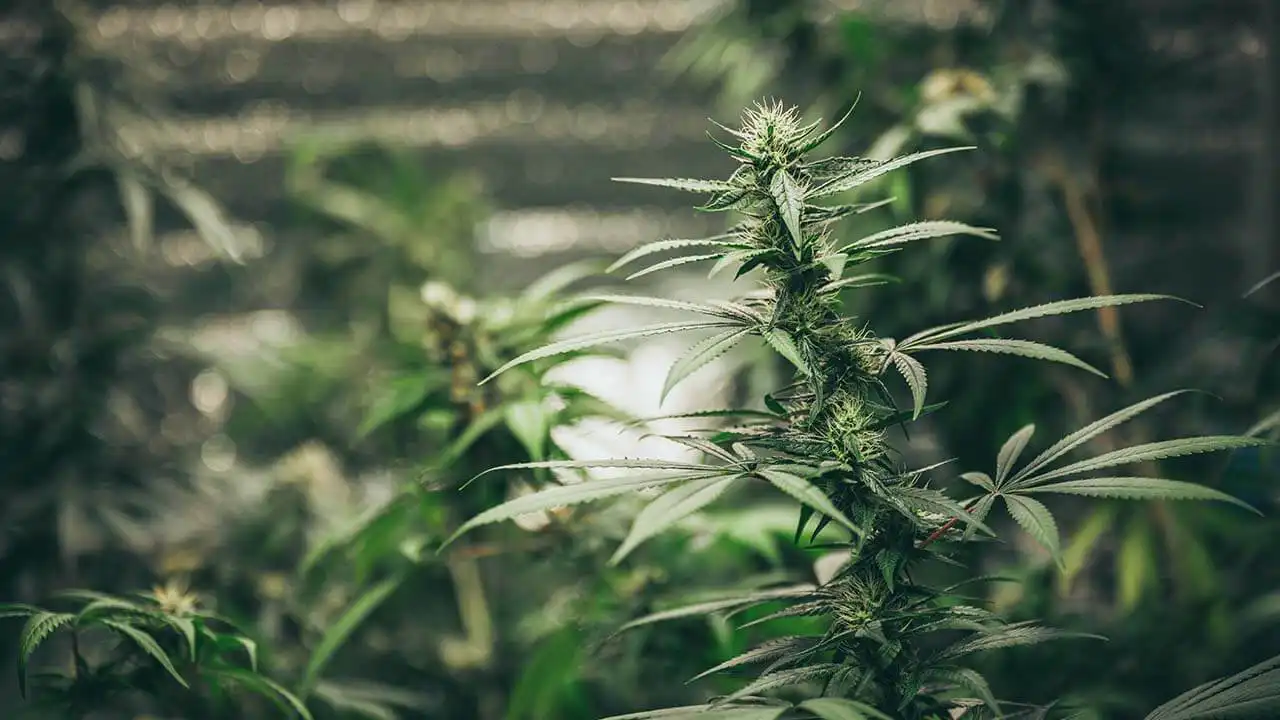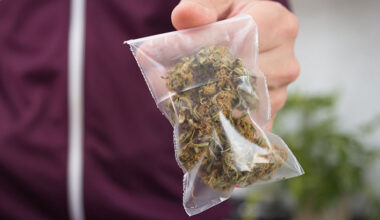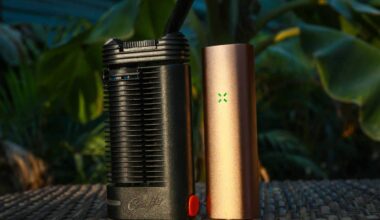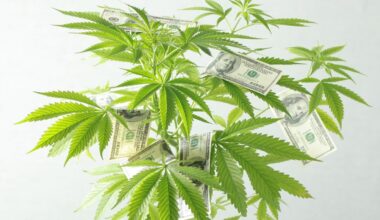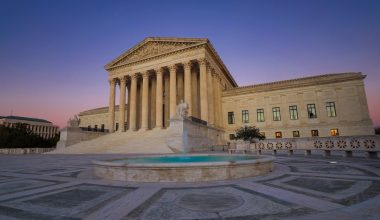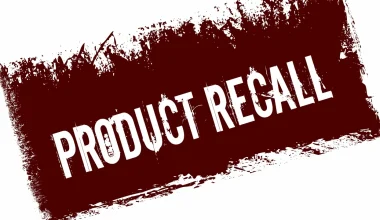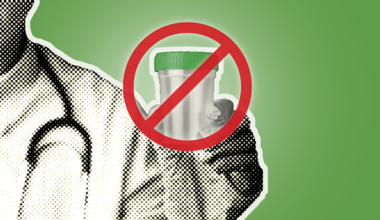Steven Brown firmly believes THCA flower is federally legal hemp under the 2018 Farm Bill.
But the CEO of Minnesota-based Nothing But Hemp isn’t selling the stuff, not online nor at any of his 11 retail locations in two states that offer an otherwise comprehensive array of hemp-derived THC products.
That’s because more and more states without regulated adult-use marijuana markets are passing laws that clarify THCA flower is exactly what most cannabis users would recognize it as: plain old “marijuana flower” and, thus, illegal.
“Every year I see more and more states adopt laws that make THCA illegal,” he told MJBizDaily via phone. “There’s too much risk in it.”
Some legal observers argue that THCA is still allowed under federal law regardless of what states do as long as current Farm Bill protections last.
But with a wave of states empowering law enforcement to recognize THCA as marijuana – and to seize it – hemp merchants such as Brown are left to conclude that the boom is ending.
How Tennessee, Texas are addressing THCA flower
In 2024, Tennessee law enforcement officers seized a large shipment of what they claimed was marijuana.
But because the definition of marijuana under state law did not account for THCA, Tennessee authorities in December agreed to pay two hemp businesses $735,000 after the seized product spoiled.
That’s unlikely to be repeated after Jan. 1, 2026, when a bill redefining hemp takes effect.
The measure was signed into law on May 21 by Tennessee Gov. Bill Lee.
Starting next year in Tennessee, THCA will be defined as “the precursor of delta-9 THC.”
And THC will be defined as “tetrahydrocannabinol, THCa, a THC component, or any derivative thereof.”
A similar scenario is unfolding in Texas, where state lawmakers passed a bill in May that also massages the definition of THC under state law.
That bill now awaits Gov. Greg Abbott’s approval, though advocates for the state’s $5.5 billion hemp industry said Monday they delivered 5,000 letters and a petition with more than 118,000 signatures begging him to veto the legislation.
Neither Tennessee nor Texas allows for medical marijuana, so, to date, they have been ideal markets for hemp-derived THC.
Critics say the bans will drive demand back to the illicit marijuana market and shut down thousands of taxpaying businesses.
2018 Farm Bill created ‘THCA loophole’
Most observers acknowledge that Congress unwittingly created a so-called “THCA loophole” when the 2018 Farm Bill defined “hemp” as cannabis plants or plant-derived products with 0.3% THC or less by dry weight.
However, most raw cannabis plants contain very little THC.
They contain THCA, or tetrahydrocannabinolic acid, which heat converts into THC.
That’s despite the fact legal hemp is supposed to be grown under the auspices of state hemp programs that adhere to U.S. Department of Agriculture guidelines.
Those guidelines explicitly say that hemp testers must heat a sample and convert the THCA into THC, observed Rachel Gillette, an attorney at Colorado-based Holland & Hart who specializes in cannabis law.
“So what is really happening here, people are growing cannabis and slapping a hemp label on it and saying its legal in all 50 states – but that’s not legal certified hemp,” she said.
“But law enforcement is very confused, and there’s no real regulatory enforcement.
“Therein lies the loophole.”
Federal lawmakers have signaled their awareness of the loophole – and their intention to close it in the next Farm Bill.
But with the Farm Bill nearly two years overdue and little progress toward an updated version of the massive legislative package, the onus of regulating and enforcing THCA is falling to the states.
Over the past half decade, “we’ve seen maybe the biggest legal market expansion in cannabis history,” said Rod Kight, a North Carolina-based attorney who specializes in the distinction between hemp and marijuana.
More recently, he added, “we’re seeing that rapidly cut off.”
Lingering questions surround THCA enforcement
Texas’ hemp-derived THC ban goes much farther than Tennessee’s.
Tennessee still will allow the popular hemp-derived THC beverages that Nothing But Hemp’s Brown and many other merchants, including major marijuana multistate operators, are distributing nationwide.
That dissonance signals what Kight sees as a continuation of the longstanding war-on-drugs stigma: cannabis flower classified as illegal, with drinks, gummies and other products acceptable.
But some companies appear willing to run the risk even when THCA flower is explicitly banned.
For example, some THCA flower merchants based in southern Oregon – where marijuana prices are still depressed amid massive oversupply – will ship to customers in states that other major brands won’t service.
And on Tuesday, Maryland-based SuperGreens Hemp Co., which sells THCA flower online, announced it had purchased 36 THCA cannabis farms across the country.
The company said some of the THCA farms it acquired are located in Texas and California, where state law explicitly limits intoxicating cannabis to regulated marijuana channels.
That reveals what Gillette calls a “massive enforcement gap.”
“There’s no enforcement beyond the farm-gate” to ensure hemp adheres to the USDA guidelines, she said.
And there are simply too many merchants selling THCA products online and in stores to shut them all down.
Observers believe the likeliest path in Texas and other states where THCA merchants still do business might be a couple of high-profile enforcement actions against the most prominent businesses.
That might encourage other merchants, or their investors, to think twice – and to quietly shutter their own businesses.
Subscribe to the MJBiz Factbook
Exclusive industry data and analysis to help you make informed business decisions and avoid costly missteps. All the facts, none of the hype.
What you will get:
- Monthly and quarterly updates, with new data & insights
- Financial forecasts + capital investment trends
- State-by-state guide to regulations, taxes & market opportunities
- Annual survey of cannabis businesses
- Consumer insights
- And more!
Will THCA bans benefit regulated operators?
Most observers agree that the nationwide demand for hemp-derived THC products is a direct result of marijuana prohibition at the federal level.
They also agree that overly strict state legalization laws help encourage entrepreneurs to get into hemp rather than regulated marijuana.
That’s reflected in lobbying records and public statements from marijuana companies and advocacy organizations, who say that hemp merchants who pay less in taxes and abide by fewer regulations enjoy an unfair advantage.
Part of the enforcement philosophy is that a crackdown on hemp will encourage those merchants to obtain state marijuana licenses and play by the same rules.
For his part, Brown won’t play that game.
“I run what’s pretty close to an eight-figure business, and I would never in a million years go into” state-regulated marijuana, he said.
“There’s way too much risk and regulation in it.”
Chris Roberts can be reached at chris.roberts@mjbizdaily.com.
Medical Disclaimer:
The information provided in these blog posts is intended for general informational and educational purposes only. It is not a substitute for professional medical advice, diagnosis, or treatment. Always seek the advice of your physician or other qualified healthcare provider with any questions you may have regarding a medical condition. The use of any information provided in these blog posts is solely at your own risk. The authors and the website do not recommend or endorse any specific products, treatments, or procedures mentioned. Reliance on any information in these blog posts is solely at your own discretion.
